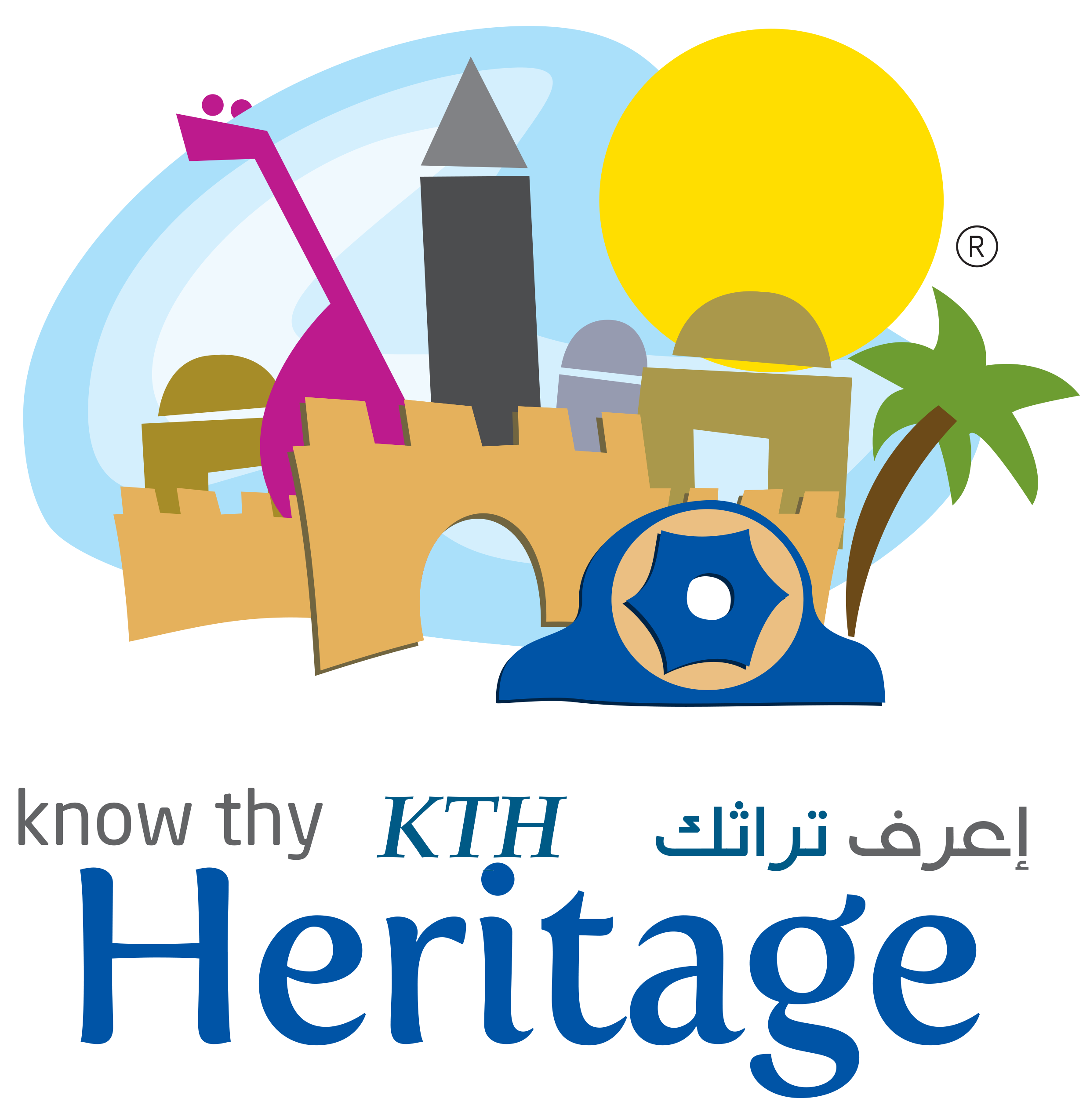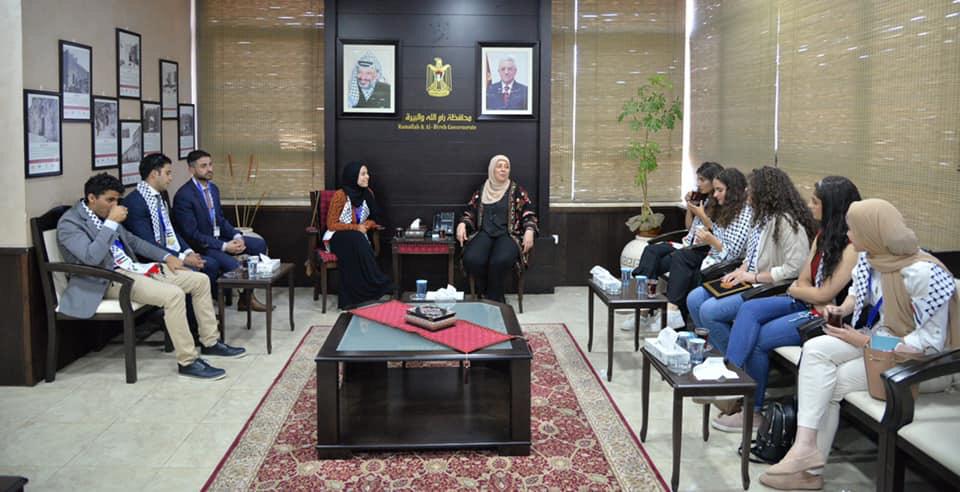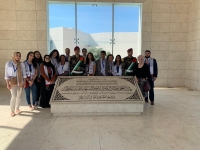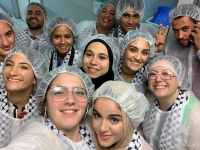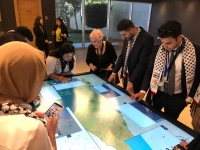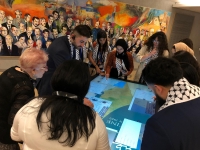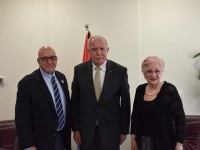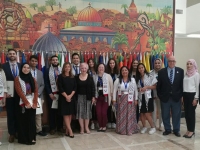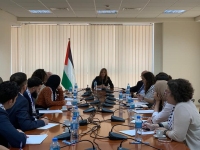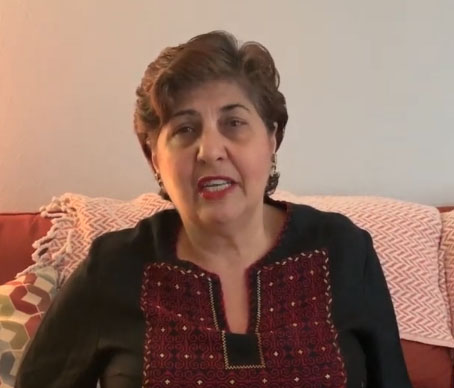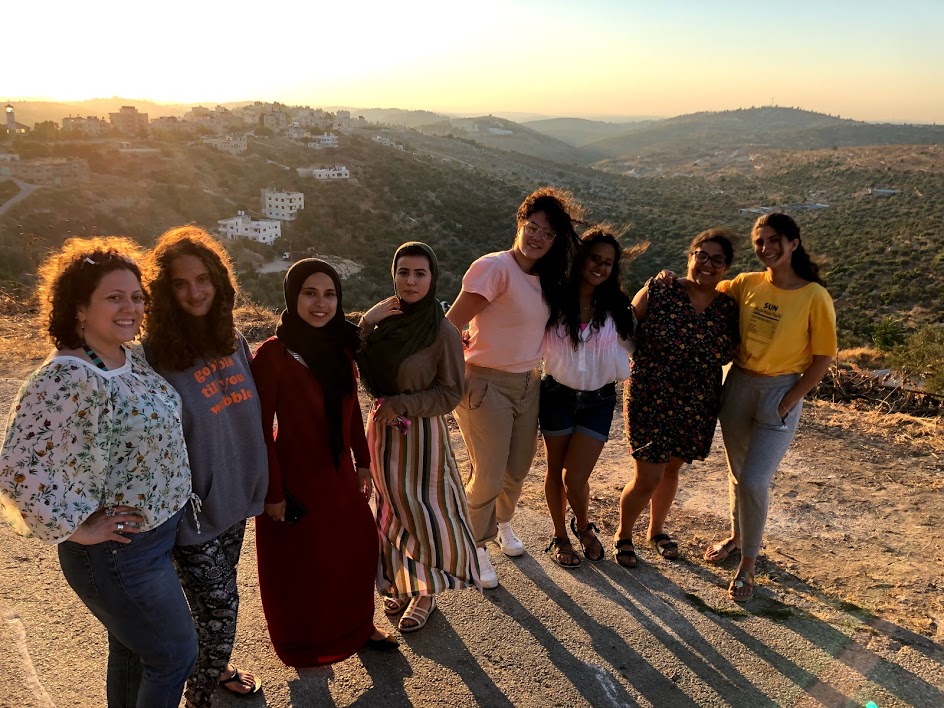A Day of Immersion into Palestine: Yesterday, Today, and Tomorrow
By Ranya R.
It was our first official day in Palestine. After the previous day being filled with anxiety and stress regarding what might happen while entering our country, we were full of excitement to begin our journey through Palestine.
After having a delicious Palestinian breakfast of lebne, zaatar, hummus, and more at our guest house, we got on the bus and made our way to Birzeit Pharmaceutical Company. We took a tour of the company and were able to witness the incredible work being done in Palestine to produce quality medications with some of the latest technologies. The guides showed us the machines that go into producing pharmacy for Palestine in action. It was a fun and exciting experience, even getting to wear the hair nets and factory coats that most of the employees wear while working. It was extremely enlightening to learn how different aspects of our Palestinian economy work and not only thrive under occupation, but even exceed international standards.
After the tour of the factory, we headed to the Ministry of Foreign Affairs to meet with the Palestinian Authority and Ambassador Hanan Jarrar and have a discussion about the state of Palestine and the PA’s future plans for the country. It was a tense conversation that was also a healthy and much needed discussion.
Sir Rateb Rabie, KTH President, and Dr. Najat Arafat Khelil, Chair of KTH Board of Directors, had the opportunity to meet with the Minister of Foreign Affairs and Expats, introduce the KTH program, and discuss ways of building cooperation and support for the Palestinian diaspora around the globe. KTH leadership and the Minister decided to develop an official relationship by signing a memorandum of understanding (MOU).
Later in the day, we met with Dr. Hanan Ashrawi, PLO executive committee member and longtime activist for Palestinian freedom. Dr. Ashrawi enlightened us about the current situation, discussing the challenges facing the Palestinians, such as the deal of the century, the financial strain, and the struggle to keep building the state of Palestine. We were proud to hear that Dr. Ashrawi has great interest in KTH and the well-being of the Palestinian youth in the diaspora as she is a member of the KTH advisory board.
Our third meeting of the day was with Dr. Laila Ghannam, governor of Ramallah, where we discussed what each of us can do to help the state of Palestine. She emphasized the importance of spreading awareness and preserving our culture. We were grateful for her hospitality and the time she spent with us.
Later that day, we visited the Yasser Arafat tomb and museum, which was absolutely incredible. We learned historic information about the late president and were even able to tour his office and bedroom while he was under siege. We were overcome with emotion as we walked through this museum and learned of such important moments of our history.
We were glad to finish our day with exciting dabkhe lessons from the Smoud Folklore group, which was definitely a laugh for all of us and allowed us to get closer to our heritage and culture. There were many different forms of dabkhe attempted, but none fully accomplished, yet. We followed dabkhe with dinner and our usual debriefing and reflection to end a very educational and significant day and prepare for our next day in Palestine. Onto day 2!
